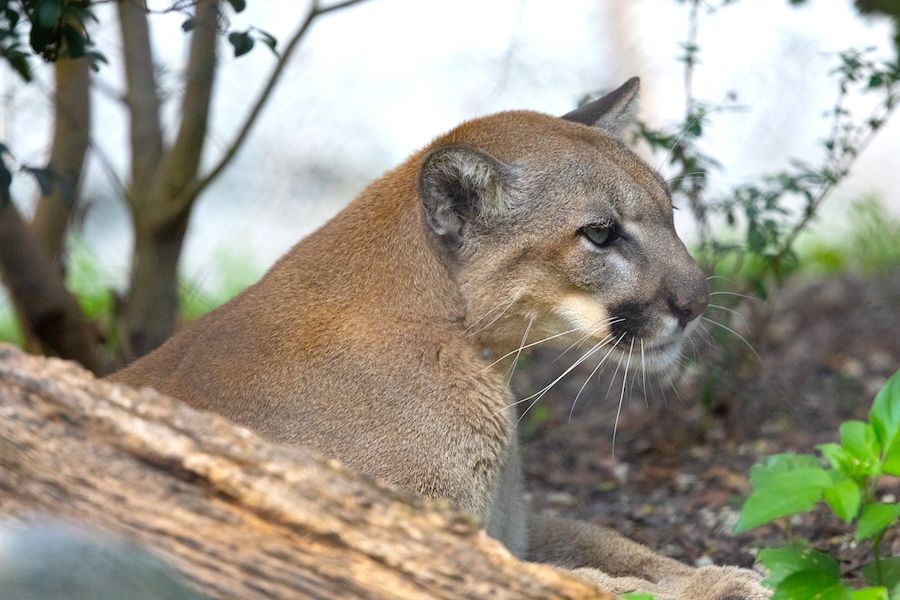This post was originally published on Eco Watch
The Trump administration has proposed a rule that would eliminate endangered species’ habitat protections in the United States.
The rule change would “rescind” the regulatory definition of “harm” to no longer include habitat modification for endangered and threatened wildlife under the Endangered Species Act (ESA).
Environmentalists said the move would cause critically endangered species to become extinct due to activities such as logging, mining and development, reported The Associated Press.
“The Trump administration is trying to rewrite basic biology — like all of us, endangered species need a safe place to live,” said Drew Caputo, vice president for lands, wildlife and oceans with Earthjustice, in a press release from the nonprofit public interest organization. “This misguided new proposal threatens a half-century of progress in protecting and restoring endangered species. We are prepared to go to court to ensure that America doesn’t abandon its endangered wildlife.”
Noah Greewald, the Center for Biological Diversity’s endangered species director, said the biggest contributor to extinction is habitat destruction, The Associated Press reported.
“The proposed rule would pave the way for timber, oil, mining and other extractive industries, as well as the government and individuals, to destroy habitat where endangered species live, even if the damage to habitat harms those species,” Earthjustice said.
The proposal rejects a U.S. Supreme Court ruling from 1995 that upheld how the definition of harm applied to habitat destruction.
Justice O’Connor’s ruling at the time said that “the landowner who drains a pond on his property, killing endangered fish in the process,” would violate the ban on harm to endangered wildlife.
The Trump administration’s proposed rule change would legalize such harmful actions.
“For 50 years, the ESA has saved numerous species — including iconic American species like bald eagles, gray wolves, Florida manatees, and humpback whales — from extinction. One key to this success has been its definition of harm, which recognizes the common-sense concept that destroying a forest, beach, river, or wetland that a species relies on for survival constitutes harm to that species,” Earthjustice said. “When species disappear, ecosystems become at risk of wide-range collapse.”
More than a third of species are already at risk of extinction, in large part because of habitat destruction.
The U.S. Fish and Wildlife and National Marine Fisheries Services argued that habitat modification is not an intentional targeting of species — called “take” — and therefore shouldn’t be considered “harm.”
Environmentalists said the “take” definition has always included acts that harm species, and that the Supreme Court upheld the definition of harm.
Greenwald said the proposed rule “cuts the heart out of the Endangered Species Act,” reported The Associated Press.
He argued that Florida panthers and spotted owls are both protected by the inclusion of habitat destruction in the current rule. The rule change would mean that someone who builds a development or carries out logging in a forest would be able to do so unimpeded if they said they didn’t intend to cause harm to endangered species.
“If (you) say harm doesn’t mean significant habitat degradation or modification, then it really leaves endangered species out in the cold,” Greenwald said.
The rule has been published in the Federal Register, triggering a 30-day public comment period that will be open until May 19.
Caputo said if the rule is adopted, environmental groups will challenge it in court.
Patrick Parenteau, emeritus professor at the Vermont Law and Graduate School, said the question is can the Trump administration repeal a rule previously upheld by the Supreme Court that is therefore subject to precedent.
Parenteau said the current “harm” definition has mandated the conservation of “many, many millions of acres of land” that have helped keep species alive.
“Habitat is life, right?” said Maxx Philipps, the Center for Biological Diversity’s Hawaii and Pacific Islands director, as The Associated Press reported. “And without it, there is no recovery and without recovery, there is only extinction.”
The post Trump Admin Aims to Gut Endangered Species Act Habitat Protections appeared first on EcoWatch.





0 Comments